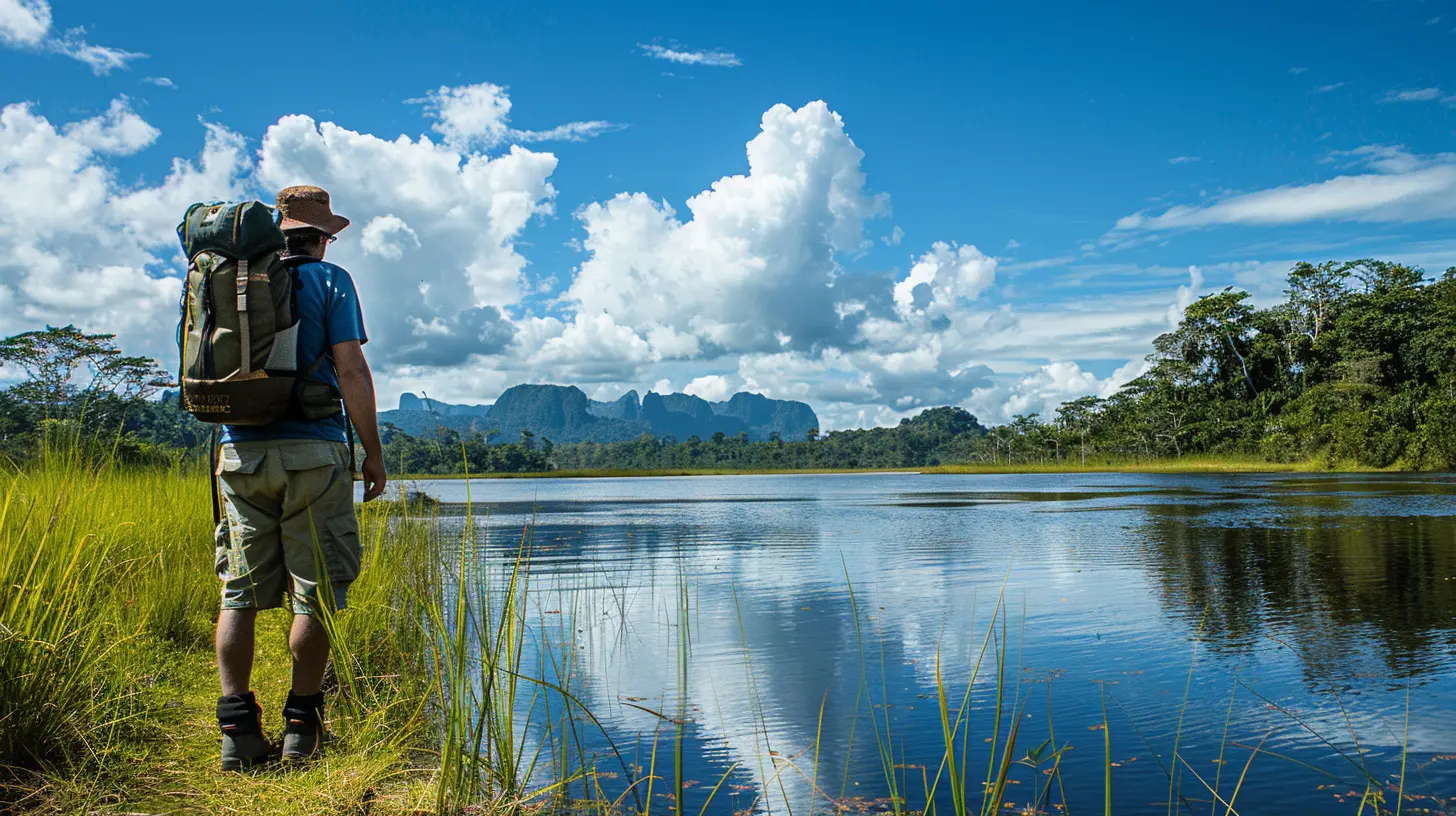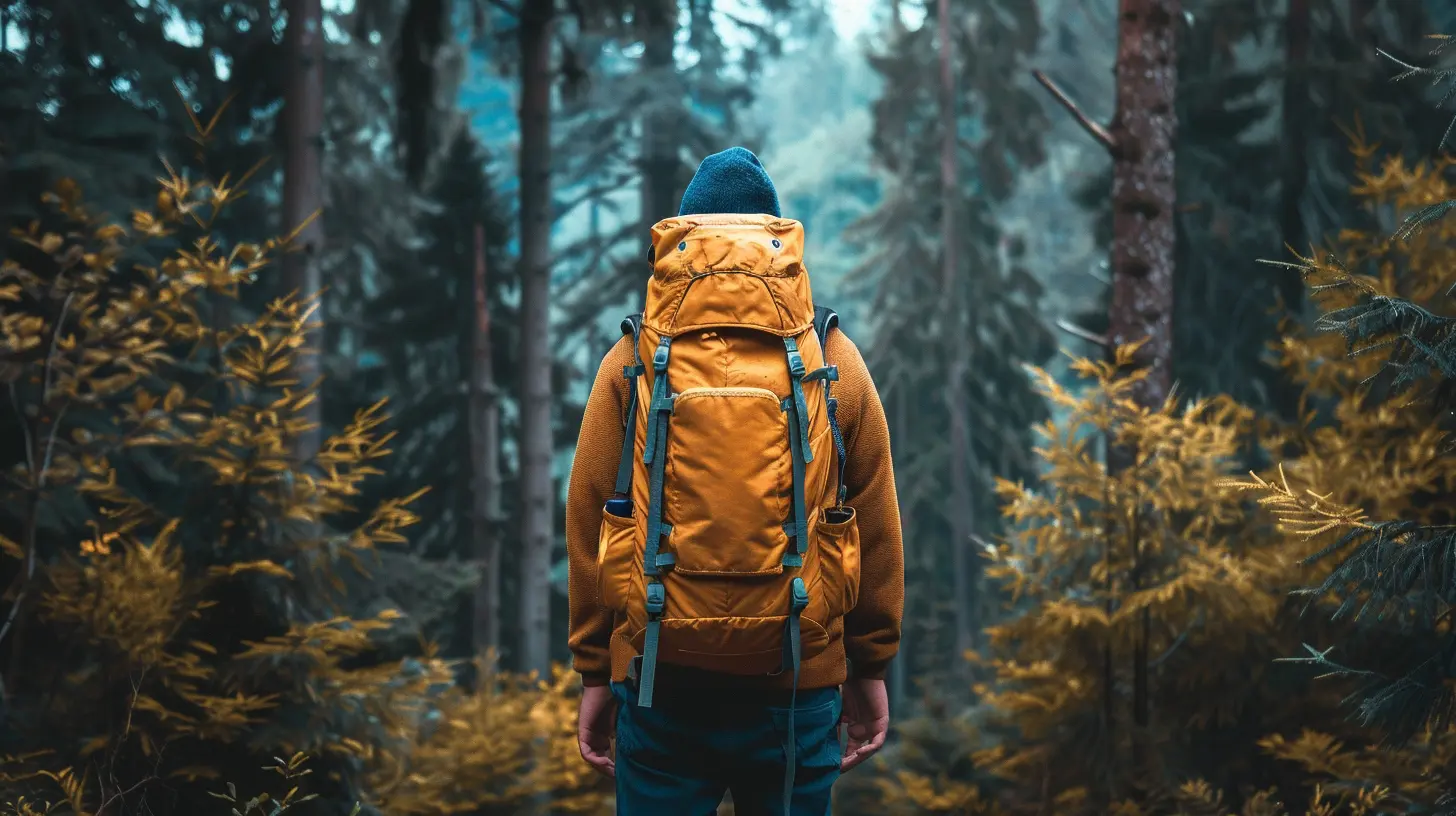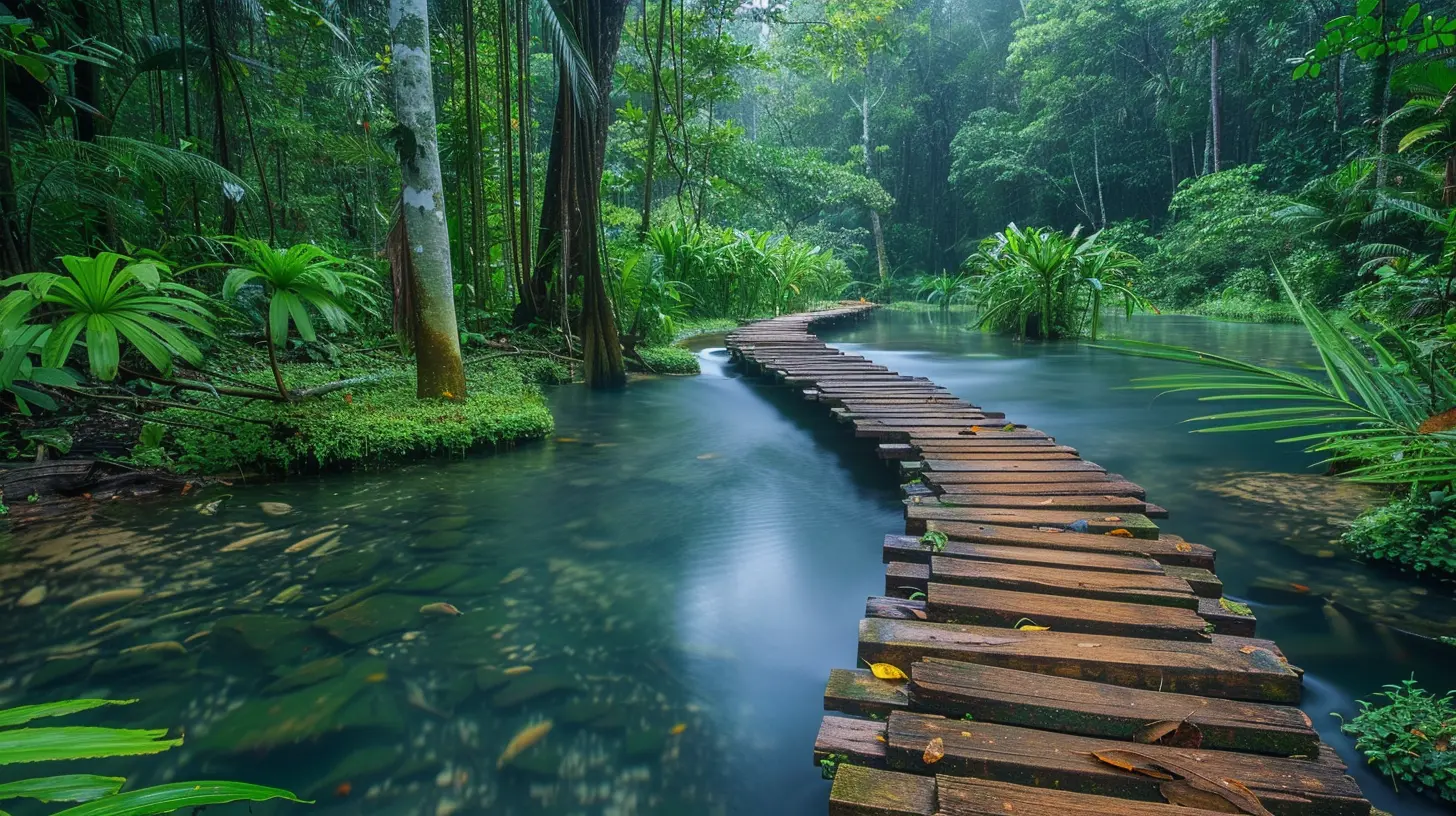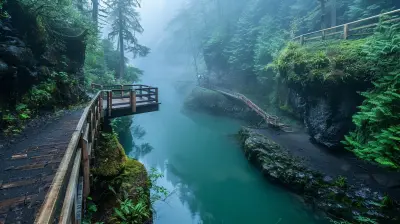Guided Eco Tours That Help Restore Nature While Exploring It
4 December 2024
In an age where sustainability is more important than ever, the tourism industry is undergoing a much-needed evolution. No longer is it enough to simply "take only pictures and leave only footprints." More travelers are seeking meaningful experiences that not only educate but also help repair the natural environments they cherish. Guided eco tours, designed with the dual purpose of offering unforgettable explorations and contributing to conservation efforts, are fast becoming the go-to option for mindful adventurers.
If you're someone who loves nature but also wants to lend a helping hand to restore it, guided eco tours might just be your ideal trip. Let’s dive into this unique form of travel that blends exploration with eco-consciousness, and how it’s making a real difference for Mother Earth.

What Are Guided Eco Tours?
You may have heard of eco-tourism, but what exactly are guided eco tours? In essence, these are organized trips where tourists explore natural landscapes under the guidance of environmental experts. Unlike traditional tours, these experiences offer more than just sightseeing; they provide hands-on opportunities for participants to actively engage in restoration efforts, wildlife conservation, or habitat regeneration.Imagine hiking through a lush forest, not only learning about its flora and fauna but also planting trees to reforest previously damaged areas. Picture snorkeling in a coral reef while taking part in underwater clean-up initiatives, or participating in the restoration of a wetland ecosystem. These tours give you the chance to leave a positive mark on the world, all while enjoying its scenic beauty.
Why Are Guided Eco Tours Important?
With the rise of environmental issues such as deforestation, loss of biodiversity, and climate change, tourism has often come under fire for its negative effects on ecosystems. Ironically, in some cases, tourism can cause the very destruction of the environments that visitors are traveling to see. Guided eco tours offer a solution by flipping the script—they transform travelers from passive observers into active participants in nature’s preservation.By opting for these tours, you don't just witness nature—you're helping protect and restore it for future generations. Plus, you’re learning sustainable practices firsthand, which you can then apply in your everyday life. It’s travel with a purpose, a way to transform a simple vacation into a legacy of change.

The Benefits of Guided Eco Tours
1. Contribute to Conservation
One of the biggest draws of guided eco tours is that your trip directly contributes to conservation efforts. Many tours partner with NGOs, local governments, or environmental groups to ensure that the actions you take—whether it’s planting trees or participating in wildlife monitoring programs—are making a tangible impact. It's not just about admiring nature; it's about actively preserving it. For example, some tours support wildlife reserves, helping to protect endangered species and their habitats.2. Education and Awareness
Let’s be real—most of us can read about endangered species or climate change all day, but nothing compares to experiencing nature’s fragility firsthand. These eco tours are led by experts—from marine biologists to forest rangers—who provide insightful knowledge on the habitats, wildlife, and ecosystems you encounter. You'll gain a clearer understanding of the environmental challenges being faced and the importance of sustainable practices. Education is a huge part of the experience, and it’s a fantastic way to grow your own awareness.3. Support Local Communities
In many parts of the world, especially in rural or remote areas, eco-tourism acts as a vital source of income. A well-structured eco-tour not only focuses on nature conservation but also prioritizes the economic and social well-being of local communities. By participating in these tours, you can support local guides, artisans, and small businesses that rely on the sustainability of the land and resources you’re helping to protect. It’s a win-win!4. Unlock Remote, Untouched Destinations
Forget overcrowded tourist hubs. Most guided eco tours take place in lesser-known, pristine spots far removed from the usual suspects. These trips can open doors to hidden gems you might never have known existed, from remote rainforests in Costa Rica to secluded islands in the Maldives. You’ll gain access to places that aren’t overrun by mass tourism, allowing for a more intimate and authentic connection with nature.5. Leave a Lasting Impact
Unlike a typical vacation where the memories fade as soon as you're back in the grind, the impact you leave on a guided eco tour is long-lasting. Whether it’s the coral you helped restore or the forest you helped replant, your participation has life-giving ripple effects. For years to come, your effort will continue to benefit ecosystems, wildlife, and local communities.
Types of Guided Eco Tours
So, what kind of hands-on eco-tourism experiences are out there? Whether you’re drawn to marine life, forests, or even desert landscapes, there’s something for every kind of eco-conscious traveler.1. Marine Conservation Tours
If you're passionate about the ocean, marine conservation eco tours are for you. These tours often focus on restoring coral reefs, removing ocean pollution, and protecting endangered marine species like sea turtles or dolphins. You might find yourself snorkeling through crystal-clear waters or diving deep into underwater caves, all while collecting data on biodiversity or helping local scientists monitor ocean health.For instance, in places like the Great Barrier Reef in Australia or the Philippine islands, you can join a guided tour that combines environmental education with hands-on activities like coral propagation. It's a fantastic way to "give back" to the ocean that gives us so much.
2. Wildlife Conservation Safaris
Ever dream of seeing elephants, lions, and rhinos up close? Wildlife conservation safaris allow you to do just that while contributing to the protection of these magnificent creatures. These tours not only give you a front-row seat to some of Earth’s most amazing wildlife but also teach you about conservation efforts aimed at saving these species from threats like poaching and habitat loss.In Africa, for example, some eco tours focus on elephant conservation, where you can help monitor the movements of herds or work alongside anti-poaching patrols. It's a great way to connect with wildlife on a deeper level while helping to secure their future.
3. Forest Reforestation Hikes
Prefer the woods? Forest reforestation tours take you into the heart of damaged or deforested areas, where you’ll participate in planting native trees and restoring habitats. Whether you’re wandering through the rainforests of Central America or the temperate forests of Europe, these tours not only offer breathtaking hikes but also the deeply satisfying experience of helping an entire ecosystem recover.For example, in Borneo, you can join eco-tours that help restore rainforests devastated by illegal logging. You’ll not only trek through the jungle but also plant seedlings to help the forest—and the species that call it home—regain their strength.
4. Wetland Restoration Tours
Wetlands are some of the most important ecosystems on the planet—they help filter water, store carbon, and provide homes for a wide variety of wildlife. Unfortunately, they are disappearing at an alarming rate. Wetland restoration tours aim to reverse this. On these tours, you're likely to get your hands dirty planting vegetation or helping rebuild bird habitats in marshes and estuaries.In places like Florida or the Everglades, you can find guided eco tours focusing on wetland restoration. Not only will you learn about the vital role these ecosystems play in flood protection and pollution control, but you’ll also be part of the solution in ensuring their survival.
5. Cultural and Ecological Preservation Combos
Some eco tours combine both ecological restoration and cultural preservation. These tours allow you to work side by side with indigenous or local communities, learning about their traditional ways of life, which are often deeply tied to the environment. You may find yourself participating in rituals, helping to maintain agricultural systems, or learning sustainable practices passed down through generations.For example, in the Peruvian Amazon, guided eco tours offer travelers the opportunity to learn from indigenous tribes while supporting conservation projects that protect the world's largest tropical rainforest.

How to Choose the Best Guided Eco Tour
Selecting the right guided eco tour involves a bit of research. Here are some tips to keep in mind when booking your trip:1. Look for Certified Tours
Several third-party organizations certify eco-friendly and sustainable tourism operators. Look for tours accredited by entities like The Global Sustainable Tourism Council (GSTC) or Rainforest Alliance. This ensures that the tour meets certain sustainability and ethical criteria.2. Check the Company’s Environmental Impact
Before booking, take some time to look at the company’s website or contact them directly. Seek out companies that prioritize low-impact travel, ethical practices, and transparent information on how your participation will contribute to conservation efforts.3. Ask About the Experts Leading the Tour
Guided eco tours are all about learning, so make sure the people guiding you are knowledgeable and experienced in environmental conservation. Ideal tours are led by local conservationists, biologists, or environmental scientists who deeply understand the ecosystem you're exploring.4. Evaluate the Group Size
Smaller groups generally have less impact on sensitive environments and allow for more meaningful interactions with guides and other participants. They also make it easier for everyone to contribute in a hands-on way.Conclusion
Guided eco tours offer an exciting new way to experience nature while playing an active role in restoring and preserving it. They combine adventure, education, and conservation in the best way possible. Whether you’re drawn to the ocean, the forest, or the African savannah, these eco-conscious trips allow you to make unforgettable memories while leaving a positive impact on the planet.So next time you're planning a getaway, why not choose a tour that gives back to Mother Earth? You’ll leave not only with richer experiences but also with the knowledge that you lent a hand in ensuring these beautiful places remain for future generations to discover. Happy eco-exploring!
all images in this post were generated using AI tools
Category:
Eco TravelAuthor:

Claire Franklin
Discussion
rate this article
11 comments
George Gomez
These eco tours are a fantastic way to explore nature while actively contributing to its restoration. Highly recommend!
February 5, 2025 at 5:09 PM

Claire Franklin
Thank you for your enthusiastic feedback! We're glad you enjoyed the eco tours and their positive impact on nature.
Josephine Phelps
This article beautifully highlights how guided eco tours can enhance our connection to nature while actively contributing to its restoration. Great read!
January 21, 2025 at 3:50 PM

Claire Franklin
Thank you for your kind words! I'm glad you enjoyed the article and appreciate the importance of guided eco tours in connecting us to nature.
Falkor Hayes
Great way to explore and conserve!
January 15, 2025 at 5:45 PM

Claire Franklin
Thank you! I'm glad you appreciate the balance of exploration and conservation in eco tours!
Azura McLaughlin
What a fascinating concept! Guided eco tours that not only explore our planet’s beauty but also contribute to its restoration are a brilliant way to travel mindfully. Sustainable adventures are the future of tourism!
January 10, 2025 at 4:17 AM

Claire Franklin
Thank you! I'm glad you found the concept intriguing. Sustainable eco tours truly offer a unique way to appreciate and protect our planet.
Charlie McTier
Explore nature and save it—because selfies won’t plant trees, but we will!
January 7, 2025 at 3:23 PM

Claire Franklin
Absolutely! Our guided eco tours not only connect you with nature but also contribute to its restoration—let's make a positive impact together!
Paxton Reynolds
What a beautiful way to explore nature while giving back! Truly inspiring and essential work!
January 2, 2025 at 6:08 AM

Claire Franklin
Thank you! I'm glad you found the article inspiring. Together, we can make a difference while enjoying the beauty of nature!
Flynn Bellamy
Wonderful initiative! Eco tours are a great way to explore and restore nature.
December 27, 2024 at 3:53 PM

Claire Franklin
Thank you! We're thrilled to promote eco tours that benefit both nature and our explorers.
Izaak McMichael
Fantastic concept! Guided eco tours not only enhance our experience but also actively contribute to nature restoration.
December 20, 2024 at 4:47 AM

Claire Franklin
Thank you! I'm glad you appreciate the concept—it's a win-win for both nature and adventurers!
Cassandra Kirkland
This article effectively highlights the dual benefits of guided eco tours, showcasing how they foster environmental restoration while providing immersive experiences. By engaging travelers in conservation efforts, these tours not only educate participants but also cultivate a deeper connection to the natural world.
December 14, 2024 at 3:24 PM

Claire Franklin
Thank you for your insightful comment! I'm glad you found the article helpful in showcasing the importance of guided eco tours for both conservation and immersive experiences.
Sloan Monroe
Why just explore when you can save the world? Nature called—let’s answer!
December 6, 2024 at 4:37 PM

Claire Franklin
Absolutely! Guided eco-tours not only allow us to explore the beauty of nature but also empower us to actively restore and protect the environment. Let's answer that call together!
Noemi McAdams
These guided eco tours beautifully combine adventure and conservation, offering travelers a meaningful way to explore nature while actively contributing to its restoration.
December 4, 2024 at 5:48 AM

Claire Franklin
Thank you! I'm glad you appreciate the blend of adventure and conservation in guided eco tours. They truly empower travelers to make a positive impact on our planet.
MORE POSTS

Eco Travel Tips for Minimizing Plastic Use on the Road

A Weekend with a View: Cities with Stunning Skylines

Majestic Gorge Hikes Perfect for Nature Enthusiasts

Zero Waste Travel: A Beginner’s Guide to Going Green on the Go

Budget-Friendly City Break Destinations You’ll Love

Learning to Snowboard as an Adult: It's Never Too Late!

How to Stay in the Best Boutique Hotels Without Breaking the Bank

Exploring New England: The Perfect Fall Foliage Road Trip